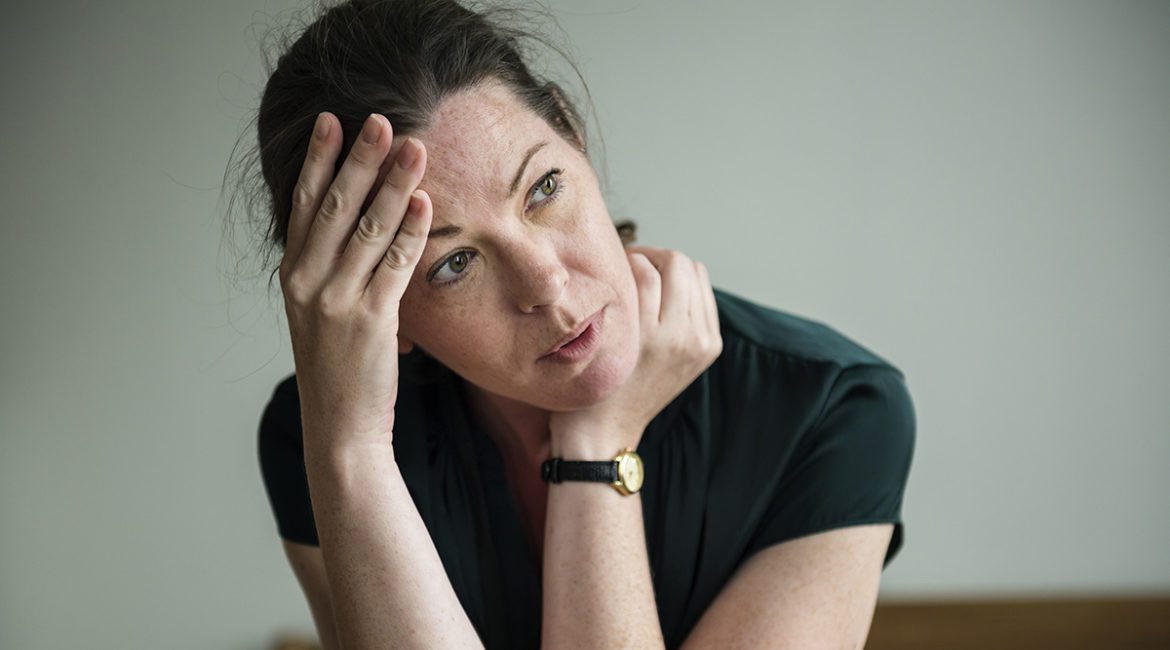At some point in our lives, we all experience anxiety – the anticipatory feeling of fear, dread, or uneasiness.
Anxiety is a normal reaction to stress that’s beneficial in certain situations, as it “can alert us to dangers and help us prepare and pay attention,” according to the American Psychiatric Association.
Typically, anxiety is a short-lived response that subsides within a few days. Many people, however, experience persistent and excessive worry that interferes with their daily lives – even if they are not in apparent danger. This could signal that a person is suffering from one of many anxiety disorders, which are highly treatable conditions that affect 40 million adults in the United States every year.
Because anxiety is a complex emotion caused by a variety of genetic, cognitive, biological, social, and environmental factors, it can be difficult to know if an episode of anxiety is temporary or the sign of a deeper psychological issue.

As mental health professionals, our team at Rural Psychiatry Associates helps people from all backgrounds manage anxiety in their lives, whether it’s through talk therapy, medication, or another type of treatment that best suits their needs.
Keep reading to learn some basic tips to cope with anxiety in your own life, and how to recognize when it’s time to seek professional help.
Tips to Cope with Anxiety
Take care of your overall health.
Getting enough sleep, eating healthy meals, exercising regularly, limiting alcohol intake, and keeping in touch with your loved ones are all ways to take care of your overall health and mitigate anxiety.

When we neglect these basic needs, our bodies begin to feel imbalanced, making our minds more susceptible to anxious thoughts and behaviors. Prioritizing your health will help you maintain a stable mindset that allows you to cope with anxiety if it occurs.
Practice deep breathing.
When you feel anxious, you may experience physical symptoms like increased heart rate, stomach aches, muscle tension, rapid breathing, and high blood pressure. One of the quickest ways to ease these symptoms is through deep breathing, the conscious act of inhaling air through your nose and exhaling through your mouth.
Doing deep breathing helps stimulate the parasympathetic nervous system and can calm the body down physically, emotionally, and even hormonally. When in this state, you can think more clearly, respond more rationally, and be in a more relaxed state of being.
Learn to recognize anxiety triggers.
Do you feel anxious right before a test? After too much coffee? At the doctor’s office? All of these are examples of anxiety triggers, or personal situations that increase feelings of fear or uncertainty in your life. Sometimes anxiety happens for no apparent reason at all.
Taking the time to identify what makes you anxious – either on your own or with help from a mental health professional – allows you to make changes to your lifestyle, behavior, thinking patterns, habits, or environment that can reduce your anxiety and improve your overall quality of life.

Common anxiety triggers include:
- Caffeine
- Finances
- Alcohol
- Messy living environment
- Negative thoughts
- Lack of sleep
- Social gatherings
- Work
- School
- Conflicts with family or friends
- Phobias
- Trauma
Some circumstances are out of your control – like a stressful time at work or a family member’s health problems – but awareness is an important step toward coping with anxiety and finding techniques that work for you.
When to Seek Professional Help
Anxiety is a normal part of being human. However, if you have ongoing anxiety symptoms that are damaging your work performance, personal relationships, or ability to complete daily tasks, it may be time to set up an evaluation with a mental health professional at Rural Psychiatry Associates.

In an initial consultation, our providers will perform a thorough evaluation of your symptoms, health background, and personality to determine if you have anxiety, depression, or another mental illness – as symptoms of these conditions heavily overlap with one another. We will then determine a treatment plan that works best for your personal situation so you can get back to fully enjoying your life.
To get started, request an appointment with our team today.

